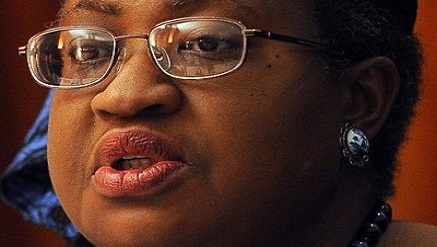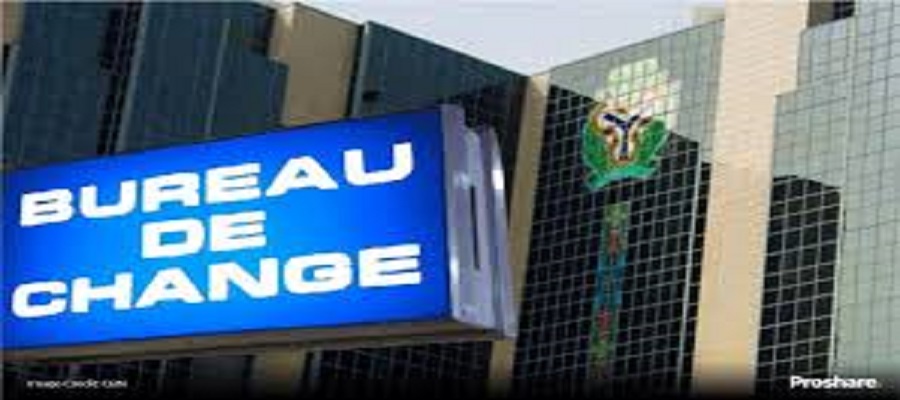E-Financial
Okonjo-Iweala Cautions against Hasty Inauguration of ECOWAS Currency

Dr Ngozi Okonjo-Iweala, minister of Finance, has cautioned the Council of Ministers and Governors of Central Banks of the West African Monetary Zone against a hasty launch of the monetary union for the sub-region.
The warning was coming barely 24 hours after it emerged that the January 1, 2015 take-off date for the use of a single currency for the sub-region was no longer feasible.
The six countries that made up the WAMZ are Nigeria, Liberia, Sierra Leone Gambia, Ghana and Guinea.
The single currency-Eco was first planned to be introduced in 2003, but this was postponed several times, to 2005, 2010 and 2014.
At a meeting of the Convergence Council of Ministers and Governors of West Africa on 25 May 2009 the start of the currency was rescheduled to 2015 due to the international economic crisis.
Speaking in Abuja at the opening session of the 34th meeting of the convergence council ministers and governors of central banks of WAMZ, Okonjo-Iweala said rather than rushing to launch the monetary union, the council should consider a sustainable take-off that would stand the test of time.
She urged the council to consider developments in the Euro zone and ensure that the lessons learnt are integrated into its recommendations in order to avoid the pitfalls that bedeviled the European monetary zone.
She said, “As you begin your deliberations I will like you to take cognizance of the recent developments in the Euro zone and ensure that the lessons learnt are integrated into the recommendations that you would make so as to avoid the pitfalls that bedeviled that monetary zone.
She said, “I urge you all to work hard towards meeting the set target date. We must not forget that the most sacrosanct objective in this endeavor is not a hasty launch of a monetary union but an enduring and sustainable one that will stand the test of time when it eventually take off.
“It may only take sometime to launch when we are comfortable that the economic fundamentals to achieve a strong monetary union are in place.”
Kadre Ouedraogo, president, ECOWAS Commission, said the zone had adopted a revised roadmap with clearly defined responsibilities to the regional institutions involved in the monetary integration process.
E-Financial
CBN Waives 2025 Licence Renewal Fee for Bureaux de Change Operators

Central Bank of Nigeria (CBN) has waived the 2025 licence renewal fee for all bureaux de change (BDC) operators.

Jonah Onojah, director of the financial policy and regulation department, announced that the waiver took immediate effect.
“This is to inform all existing bureaux de change that further to the Regulatory and Supervisory Guidelines for Bureau De Change Operations in Nigeria, 2024, and the ongoing transition to the new BDC regulatory structure, the Central Bank of Nigeria (CBN) has approved the waiver of 2025 licence renewal fee, effective immediately,” the statement reads.
“Any bureau de change that has paid for 2025 licence renewal is hereby advised to apply to the Director, Financial Policy and Regulation Department, Central Bank of Nigeria for refund to its account from which the payment emanated.
“The CBN remains committed to fostering stability, transparency, and efficiency in the foreign exchange market while ensuring that operators align with the revised regulatory framework,” the statement said.
On May 22, 2024, CBN approved new guidelines for BDC operations to improve compliance and oversight.
In the guideline, CBN said all existing BDCs are to re-apply for a new licence according to any of the tiers or licence categories of their choice.
CBN said the guidelines are part of its efforts to re-position the BDC market to play its envisioned role in the foreign exchange market in Nigeria.
E-Financial
PalmPay is not a Loan App, says MD

PalmPay, a Mobile Money Operator and digital payment platform has reaffirmed its role as a mobile payment provider, correcting the insinuation that it is a loan App.

Chika Nwosu, Chief Executive Officer, PalmPay, speaking at a press conference in Lagos clarified that PalmPay’s core mission is to provide seamless payment solutions and financial services, not to issue loans.
This clarification became necessary against erroneous messages in some social media platforms that the PalmPay is a loan App, as well as individuals wearing PalmPay-branded clothing allegedly been involved in arresting loan defaulters, raising concerns about the company’s role in debt recovery practices.
He explained that all lending activities on its platform are conducted by third-party financial institutions leveraging its ecosystem, not PalmPay itself.
“PalmPay is not a loan App. We provide a platform for third-party financial institutions to offer their services, including loans, to our users. These institutions operate independently and comply with all regulatory requirements,” Nwosu explained.
More so, Chika Nwosu identified smartphone penetration, internet connectivity and innovative technologies as key factors that are crucial to increased access to mobile money services in Nigeria.
According to him, with smartphone penetration projected to reach 65% by 2026 as well as improved internet infrastructure, more Nigerians will be enabled to access mobile money services.
He disclosed that, with fintech companies such as PalmPay evolving through digital wallets and seamless payment gateways, accessibility to mobile money service was bound to expand soon.
He emphasized that with demand for affordability of financial services growing, more opportunities would be unlocked for PalmPay in the nearest future.
“From under 10,000 agents in 2015 to over 1.5 million agents in 2023, agent networks have become the backbone of mobile money operations in Nigeria. For this reason, we are more likely to see a sharp increase in the number of mobile money agents and merchants. Apart from that, MMOs will increasingly use artificial intelligence to improve customer experiences, such as machine learning, predictive analytics, and fraud detection,” he said.
Donald Ubeh, Head, Risk and Compliance, MLRO at PalmPay, while highlighting the impact of fintech companies such as PalmPay, explained that the coming of PalmPay has led to economic empowerment particularly for individual users and several Small and Medium Scale enterprises.
He noted that many Nigerians including bank customers have migrated their funds to PalmPay owing to convenience and accessibility it provides.
He added that mobile money operators were conceived with the aim of driving financial inclusion for the underserved and unbanked population.
According to EFInA, increasing adoption of fintech companies by Nigerians has led to increase in financial inclusion rate by 13% in 13 years.
E-Financial
Moniepoint MFB Says Rumours of N1.1Bn Theft by Hackers Malicious

Moneipoint has denied reports that Moniepoint MFB, its microfinance bank, was hacked and some N1.1 billion allegedly stolen.

Moniepoint, in a blog post said that the report, which began on social media was malicious and misleading and should be ignored.
According to the company, the alleged theft gained traction on social media, alleging that the company is facing operational challenges due to the hack.
“We categorically state that these claims are untrue, and we urge the public to disregard them in their entirety.
Moniepoint MFB has always maintained the highest standards for digital security and customer fund protection.
It stated that as a duly authorised and licensed financial institution, customer deposits with Moniepoint MFB are insured by Nigeria Deposit Insurance Corporation (NDIC), with the Central Bank of Nigeria (CBN) supervising and regulating its operations to ensure adherence to all applicable standards.

 E-Financial2 days ago
E-Financial2 days agoMoniepoint MFB Says Rumours of N1.1Bn Theft by Hackers Malicious

 General News2 days ago
General News2 days agoCourt Orders Arrest of Access Bank Acting MD, Others over Alleged Theft of Property

 Telecom2 days ago
Telecom2 days agoSERAP Drags Tinubu, Others to Court over ”Arbitrary” Telecom Tariff Hike

 E-Financial2 days ago
E-Financial2 days agoWorld Bank Urges CBN to Sustain Inflation Control Measures

 E-Financial2 days ago
E-Financial2 days agoZenith Bank Reinforces Commitment to Staff Wellbeing with Salary Hike and Promotions

 Telecom2 days ago
Telecom2 days agoFG, WIOCC Partner to Deliver Internet to 3m Homes with $10m Investment

 Telecom1 day ago
Telecom1 day agoGalaxy Backbone Celebrates Excellence and Innovation in Its People

 E-Financial2 days ago
E-Financial2 days agoSEC Warns against Transactions with Risevest, Stecs Cooperative Societies





















